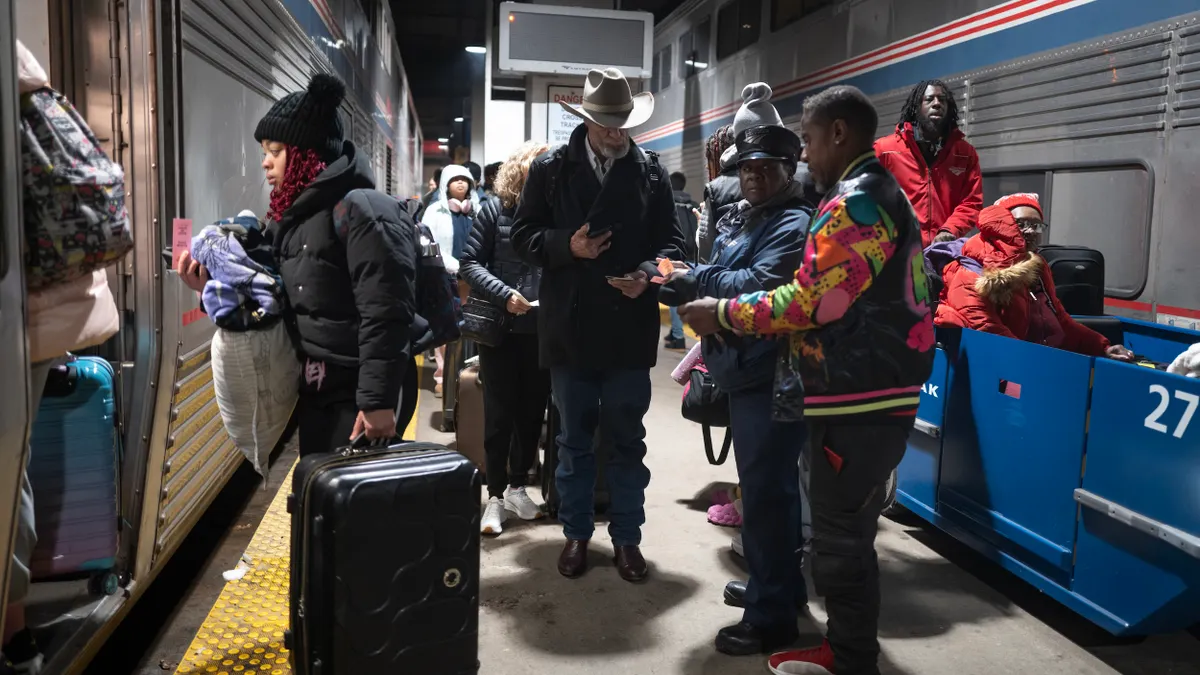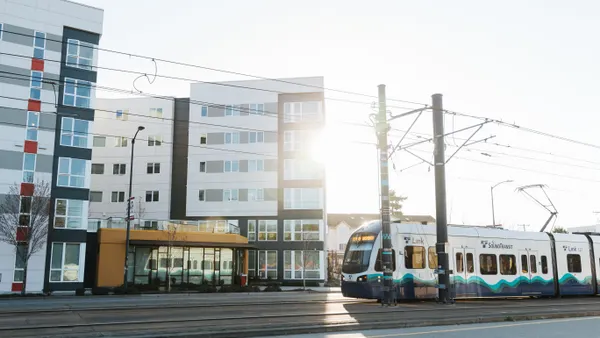Federal funding, public outreach and a strong relationship with the Federal Transit Administration are key priorities U.S. public transit leaders identified at the American Public Transportation Association’s annual meeting this week in Boston. “It's so critical that our transit agencies have the ability to continue investing to modernize and to expand in their communities,” said APTA President and CEO Paul Skoutelas. Here’s what he and other leaders said about the group’s goals.
Increased funding. If there is a federal government shutdown on Oct. 1, for the most part, public transit will keep running, Skoutelas said, as the Infrastructure Investment and Jobs Act has a provision to keep the FTA operating and able to disburse funds for previously-approved projects.
Looking beyond this coming fiscal year’s federal budget, Skoutelas and others addressed the discussions underway to reauthorize surface transportation legislation. These multiyear laws fund highways and mass transit. The current law, authorized under the IIJA, expires Sept. 30, 2026.
“Nothing is more critical to the continued investment policy direction, efficient operation and growth of our industry than securing a passage of a favorable new multiyear authorization,” said incoming APTA Chair Leanne Redden, executive director of Chicago’s Regional Transportation Authority.
APTA recommends that Congress commit nearly $138 billion to transit over five years, $30 billion more than the current five-year commitment, and close to $130 billion for passenger rail.
“Let's build a modern, well-funded, future-focused five-year service transportation law that gives us the tools, the policies and the resources to continue the good work that's going on and to help us be successful on behalf of our communities,” Skoutelas said.
The group plans “an intense and an aggressive yearlong campaign” for the bill’s passage, Redden said.
Better outreach. In the first nine months of 2025, APTA “pivoted to address new policies and broaden our support for transit by telling a powerful story about economic growth and jobs,” Skoutelas said.
“We need to tell our stories, and we've got to keep telling our stories because if we don't, others will, and maybe not as accurately as we'd like,” said last year’s APTA chair, MJ Maynard-Carey, CEO of the Regional Transportation Commission of Southern Nevada.
“We work in a business model that does not generate a profit, but rather is subsidized by taxpayers,” she said. To build and maintain public support, Maynard-Carey called for “transparency, demonstrating measurable outcomes and meaningful community engagement.”
A stronger relationship with the FTA. “Our partnership with the Federal Transit Administration has been, and will always be, [at] the forefront of what we do and how we do it,” Maynard-Carey said. She encouraged transit leaders to deepen their engagement with the FTA.
“Let's listen, share data, align outcomes and co-create strategies that work on the ground,” she said. “Let's continue to speed up pilots and demonstrations that prove what's possible.”






















